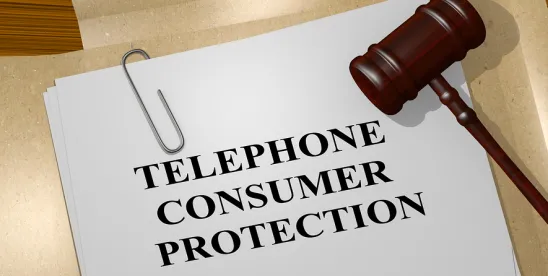At the Federal Communications Bar Association’s TCPA symposium in D.C. last month, panelists from the Federal Communications Commission (FCC) and private practice expressed uncertainty regarding when the D.C. Circuit would issue its much-anticipated ruling in the appeal of the FCC’s July 2015 Declaratory Ruling and Order (the “2015 Order”). It turns out that that day is today. And the ruling was well worth the wait.
The D.C. Circuit’s ruling upheld the FCC’s approach to revocation of consent (permitting revocation through any reasonable means) and the scope of the healthcare exemption, but set aside the FCC’s expansive definition of an “automatic telephone dialing system” (ATDS) and its untenable approach to liability for communications to reassigned telephone numbers.
ATDS: Petitioners prevailed in whole as to the interpretation of the ATDS definition, with the Court setting aside that portion of the 2015 Order, which had held that the word “capacity” refers not to equipment’s present capacity today but rather to its potential capacity next month or even next year. The Court agreed with Petitioners that the FCC’s approach was overbroad—so overbroad, in fact, that it would even encompass smartphones. In addition, the Court reached back to prior FCC rulings (dating back to 2003) that had “clarified” the statutory definition to include equipment that dials from a stored list of numbers, such as predictive dialers (while dispensing with the requirement of generating random or sequential numbers); and other notoriously inconsistent FCC pronouncements as to human intervention and other issues. The Court concluded that the FCC’s position was so unclear that its “treatment of those matters” should be set aside.
Reassigned Numbers: The Court also found that the FCC’s one-call safe harbor for calls to reassigned numbers was arbitrary and capricious. It upheld the FCC’s interpretation that “called party” referred to the current subscriber, but found that the one-call safe harbor was contrary to the “reasonable reliance” standard the FCC had otherwise adopted. The Court noted that the 2015 Order had permitted the caller to rely on consent given by the number’s customary user (e.g., a close relative), whereas the one-call only approach was inconsistent with that approach. Rather than just redline the safe harbor, the Court set aside the Commission’s treatment of reassigned numbers as a whole. The Court noted in this regard the FCC’s current rulemaking regarding the reassigned number database.
Revocation of Consent: While upholding the portion of the 2015 Order that allowed consumers to revoke consent through any reasonable means, the Court highlighted the FCC’s concession that the ruling did not address contractual provisions that specify the means of revoking consent. That is good news, insofar as it preserves other court rulings that have enforced the law of contract in this area.
The FCC will likely go back to the drawing board on the ATDS and reassigned number issues, now under the auspices of Commissioner Pai. Today’s opinion provides some significant guideposts for the agency’s further rulemaking in this area. Given the vigorous dissents to the 2015 Order on these very issues by Chairman Pai and Commissioner O’Rielly, this is a promising development for businesses seeking to communicate with consumers.




 />i
/>i

